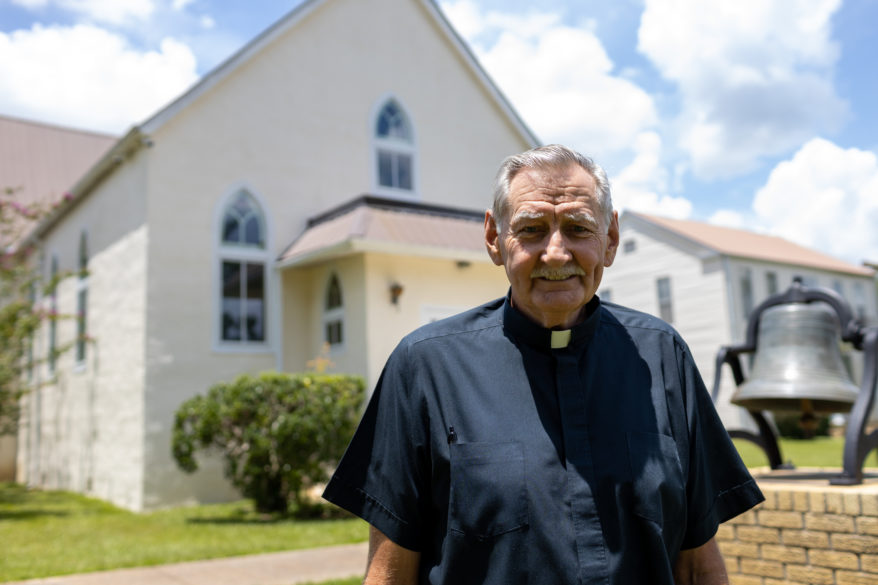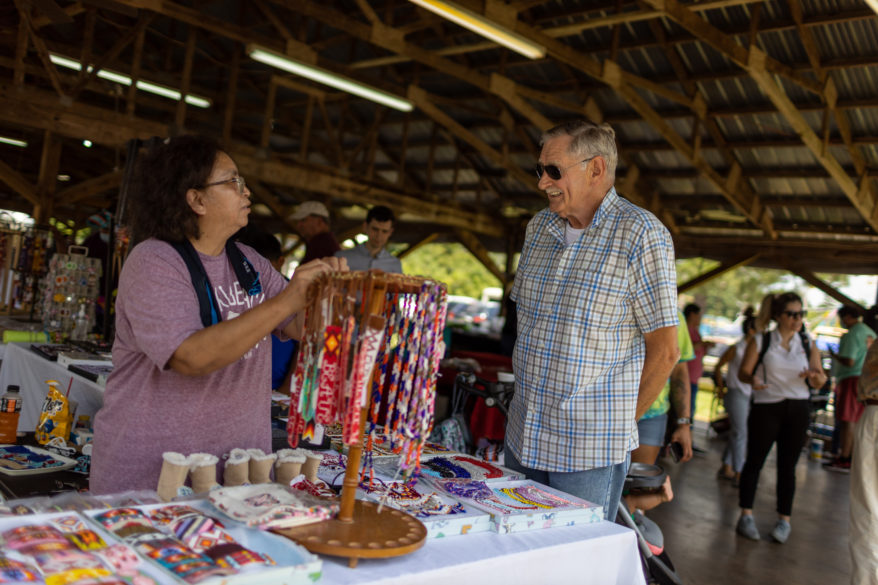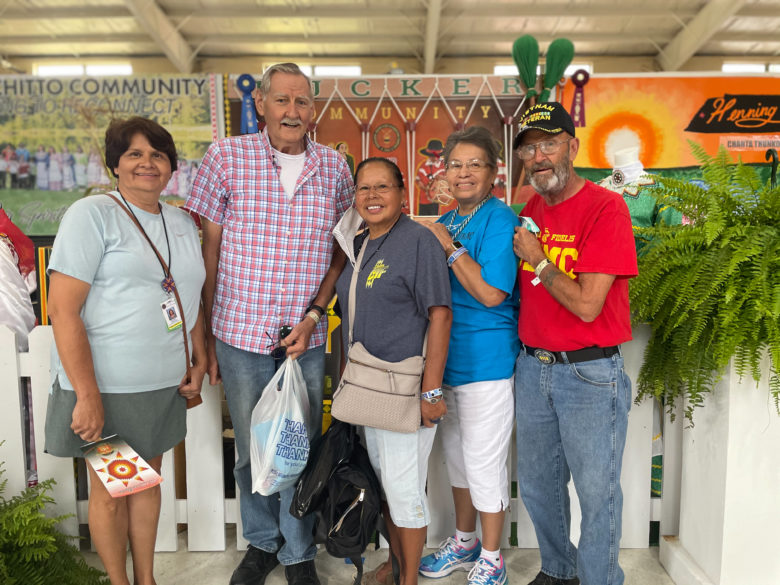By Catholic Extension
PHILADELPHIA – In 1830 the Choctaw Native Americans signed the Treaty of Dancing Rabbit Creek, which commenced their removal from Mississippi and the treacherous journey to Oklahoma on the infamous Trail of Tears.

Many Choctaw, however, refused to leave their ancestral land. Those who chose to stay had to become invisible to survive, hiding in swamps and working as sharecroppers. In 1884 a Catholic priest was sent to see what could be done to minister to the Choctaw, and Holy Rosary Indian Mission was established.
Catholic Extension has supported Holy Rosary Indian Mission since 1926. This includes helping build and repair two of its three mission churches: Holy Rosary in Tucker in 1969 and St. Therese in Philadelphia in 1972. Between Holy Rosary, St. Therese and St. Catherine in Conehatta, this faith community in the Diocese of Jackson spans 87 miles.
For a combined 31 years, a missionary priest has been helping the Choctaw grow closer to God in a place where He is ever so present. Father Bob Goodyear, S.T., who was attracted as a high school freshman to the Missionary Servants of the Most Holy Trinity, has truly answered the religious congregation’s charism to work for the “preservation of the faith among the poor and abandoned” in his ministry.

“Father Bob Goodyear is so successful in his ministry because he walks with the people every step of the way,” said Diocese of Jackson Bishop Joseph R. Kopacz. “Father Bob has remained stalwart in his love for the people and in his commitment to foster their Catholic faith in our loving God.”
Language is the doorway to the soul
In his seminary formation, Father Goodyear never imagined serving a Native American community. After arriving at Holy Rosary Indian Mission in 1975, he spent his first years learning everything he could about Choctaw culture.
This included the Choctaw language — despite being told not to bother because non-natives had never been successful doing so.
“That’s the wrong thing to say to me,” said Father Goodyear. “Because now I’m going to try.”
With the help of three Choctaw, he was able to learn the language. After eight years of study, his education reached its culmination: translating the Catholic Mass into the Choctaw language. On May 1, 1983, Father Goodyear celebrated his first Mass in Choctaw at St. Catherine, with a Vatican-approved text.
During the homily, he delivered this inspiring message:
“Language is more than words and how you put them together. Language tells you your history. It tells you your dreams.”
Along with learning the Choctaw language, Father Goodyear has had his hands in several of what he calls “non-traditional” ministries. He established the Choctaw Suicide Council and its corresponding “Suicide Counseling Manual.” Additionally, he opened a youth recreation center.
Father Goodyear served Holy Rosary Indian Mission from 1975 to 1990. After two assignments away from the reservation, he returned in 2006. Upon returning to the Mississippi Choctaw, the tribal chief told him, “I am very worried about the spiritual life of my people.”
Forming Choctaw Catholic leaders for the future
In Father Goodyear’s time away, the Catholic Church lost some of its footing among the Choctaw. His focus in his last 15 years of ministry and counting has been on developing lay leadership at the three mission churches. These lay leaders will help teach and pass on the faith to future generations.
“My most exciting moment is confirmation,” Father Goodyear said. “I’m the catechist for confirmation because I want them to get everything they need. Kids that have been confirmed have gone on to be eucharistic ministers.”
Father Goodyear, 72, has eucharistic ministers playing a vital role at Holy Rosary Indian Mission. He developed a training manual that teaches eucharistic ministers not only how to serve during Mass, but also how to lead Communion services in the absence of a priest and how to deliver the Eucharist to the sick and shut-ins. The manual is used throughout the Diocese of Jackson and at parishes in other states.
Father Goodyear had been pleased with the progress made in developing lay leaders. That progress, however, was halted by the COVID-19 pandemic.
Having performed three to four funerals a week at the height of the pandemic — the average number for a single month in previous years — he has shifted his ministry in these unprecedented times toward helping the Choctaw grieve.
“Their beliefs about death are very special,” Father Goodyear said. “They have a close relationship with the spirits who have died.”
Now, as the Choctaw hopefully emerge from the pandemic, Father Goodyear aims to renew the church on the reservation by continuing to develop lay leaders and by helping the Choctaw believe in themselves.
“I preach that you can’t really believe in God if you don’t believe in yourself, because you’re made in His image,” Father Goodyear said. “God not only created you, He believes in you.”

